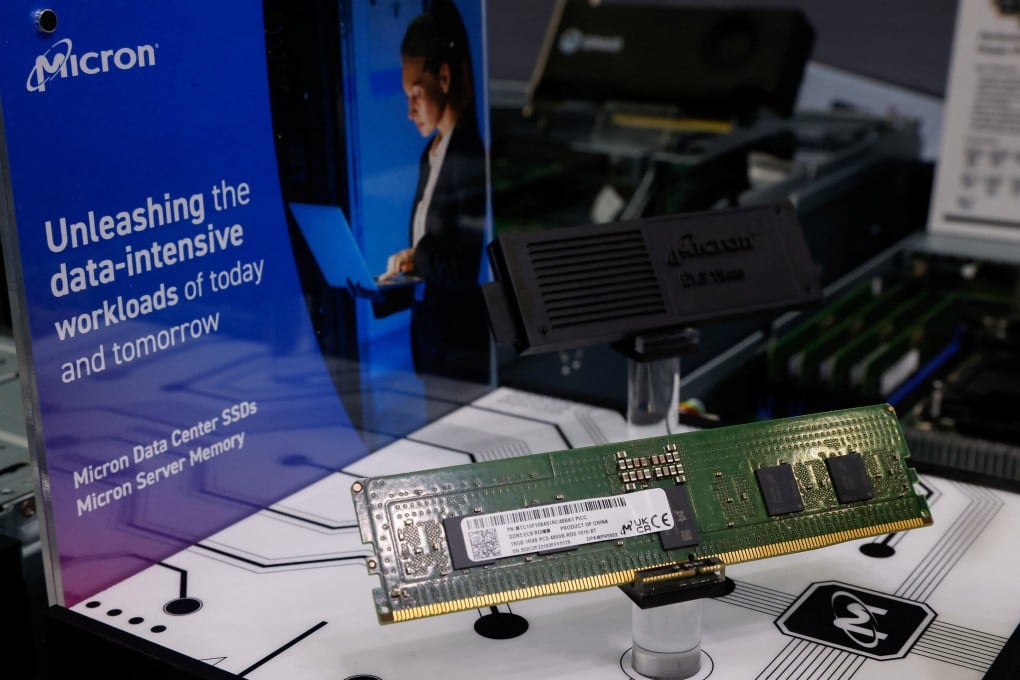Advertisement
Global Impact: Washington’s chip restrictions grow longer by the day. Why is China adding to the list?
- Global Impact is a weekly curated newsletter featuring a news topic originating in China with a significant macro impact for our newsreaders around the world
- In this edition, we look back at how quickly the ban on US firm Micron Technology came about and also at the potential implications
Reading Time:7 minutes
Why you can trust SCMP
12

Global Impact is a weekly curated newsletter featuring a news topic originating in China with a significant macro impact for our newsreaders around the world. Sign up now!
Turnabout is fair play. That must be the mood in Beijing right now after the Cyberspace Administration of China concluded its security review into Micron last month, ruling that the last company producing memory chips in the US poses a risk and can no longer sell to key information infrastructure operators, a broad category that effectively bars all sales in the country.
This cybersecurity review unfolded pretty quickly. Compare it to the one against Didi Chuxing, one of the first examples of Beijing using this power. The government effectively left China’s ride-hailing champion to twist in the wind for more than a year after it went public in the US.
Advertisement
The Micron investigation, on the other hand, was just launched in March. This was Beijing’s big push back against Washington’s escalating chip export restrictions to China (which, including collaboration with allies, seem to get stricter by the month).
However, the move betrays the limited options available to Beijing. Micron chips are comparatively easy to replace. While Washington has urged South Korea to not let rivals Samsung Electronics and SK Hynix fill the market gap in Micron’s absence, there is no guarantee they will not benefit.
Advertisement
China also sees room to boost domestic companies, especially the country’s largest memory chip maker, Yangtze Memory Technologies Corp (YMTC), despite the company being sanctioned by Washington.
Advertisement
Select Voice
Select Speed
1.00x
